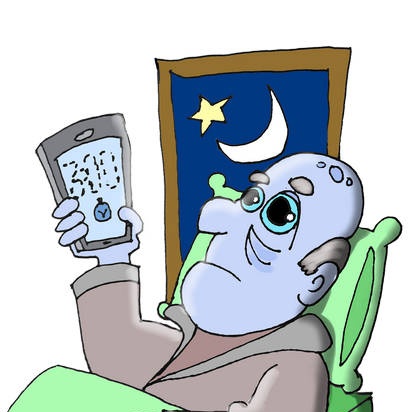Mental health and real personality |
|
Indeed, this is extremely important for us, since we live among people and in the process of activity we constantly correlate our feelings, opinions, actions with the actions of others. It is in this correspondence or inconsistency with those around us that our individuality, originality, the combination of biological, psychological and social qualities, which can be defined by the word "personality", is most clearly manifested. No two people are exactly alike. Each one is different from the others, unique. But is it possible, with such a multitude of manifestations of the human personality, to talk about something single, about some kind of "personality type"? This is not an idle question. After all, knowing the characteristics of a particular type of personality, it is easier for us to choose the most correct line of behavior in dealing with people. And it is easier for others to communicate with us, it is easier to predict how one or another of their actions will be met. When talking to each other, we often use criteria that determine personality traits. These criteria make it possible to give a rather capacious idea, in a few words, about the behavior of a particular person, about the features of his relationship with people who are nearby, about his character. What is character?“When they talk about cash in someone of one nature or another, - pointed out the famous psychiatrist P. B. Gannushkin, - then, by the same token, of course, they imply a certain one-sidedness of his mental organization, thereby making it clear about the presence of a certain disharmony in the sphere of his psyche, about the lack of balance in the relationship between the individual aspects of his mental activity. After all, if we had under the supervision of a person with a perfectly normal psyche, if, of course, there was such a person, then it would hardly be possible to talk about the presence of one or another character in him ”. Each of us has our own characteristics, our own "mental hump". One has an increased suspiciousness, the other, on the contrary, has excessive carelessness, the third has suggestibility or stubbornness. And a person tries to adapt his one-sidedness to the prevailing conditions so that shortcomings and weaknesses would turn into advantages and strength. Not everyone succeeds in this to the fullest. And some do not succeed at all. "Know, cricket, your six", Says popular wisdom. And life itself sometimes pushes us to our "Six", erasing the sharp edges of inadequate claims and ambitions, or, conversely, encouraging more vigorous activity.
Calling someone a phlegmatic, we imagine a leisurely, unperturbed person who is not inclined to hasty decisions and quick mood changes. The sanguine person is drawn to us as alive, impressionable, mobile, contact. Speaking about choleric, we mean a very active person, impetuous, hot-tempered, unrestrained in words and deeds. The melancholic appears to us timid, indecisive, shy, somewhat anxious and suspicious. Your workmate is sanguine. This is a very active, energetic person, especially if he is busy with interesting work.If there is no interest in work, he becomes boring, sluggish. Easily converges with people around him, easily gets used to new conditions. He constantly needs a change of impressions, affairs, activities, hobbies, as this increases his tone and activity. It is characterized by the ease of emergence of feelings, affections and no less pronounced ease of their extinction. He willingly takes on a new business, performs any task with passion, "with a twinkle", infecting the entire team. But it can just as easily cool down. A sanguine person does not like and does not tolerate monotonous, routine, painstaking work. He is characterized by a flexible mind, he quickly grasps everything, easily switches his attention and interests to something else. Knowing his features, we stick with this person accordingly. You can share your worries and troubles with him, he will cheer you up. He can be entrusted with a responsible job, and if she already captures him, then he will do it very quickly and efficiently. Finally, it's just interesting to spend time with him. But your flatmate is a phlegmatic. He is calm, unhurried and even with those around him. Always persistent in achieving the goal. Calmness does not leave him even in critical moments. He relatively easily manages to restrain his impulses, impulses. He rarely gets irritated, easily obeys the order established from outside or worked out by him. Reluctantly, he changes his life stereotype. It is advisable for him to entrust work where perseverance and sustained attention are required. A phlegmatic person knows how to calculate his strength well and always brings the matter to the end. To move from his usual work to a new one, to work in new conditions, he needs a certain period of “swing”, adaptation. It is rather difficult for him to switch his attention from one activity to another. He loves to adhere to the established order in everything, meets with hostility a change in the usual situation and therefore is often known as a retrograde. This is a very comfortable flatmate. We know how he will react to one or another of our actions, you can always predict his reaction. In production, such people are also appreciated. The type of activity, the peculiarities of the reaction of the phlegmatic indicate solidity, leisurely, constancy. However, it should be noted that the described temperaments, so to speak, in their pure form, we almost never meet. Temperament is only those innate prerequisites that determine the personality during its formation. He is only a kind of inclusion in the structure of the human character. More often we are faced with mixed, "transitional" types of temperament, reflecting the shift in the dynamics of human behavior that occurs when he comes into contact with others. In its purest form, we can observe the temperament of children. The older, the more mature a person is, the more formed he is as a person, the more difficult it is to separate temperament from the integral structure of his character. For now the features of temperament are already masked by the social-volitional actions of a person, determined by his consciousness, life in society, and relationships with other people. Take choleric as an example. He works as a foreman. We can safely say that if he reacted the way choleric children react, not a single member of the team would be able to work with him. And he is considered a good leader. Knows how to organize work, give a task on time and check its implementation. Even in the event of a "breakthrough", he does not fuss in vain, does not shout at the workers, but calmly does everything necessary so that the brigade can successfully complete the work. But after all, a choleric person is characterized by incontinence, impetuosity - it is not for nothing that they say about these people that they will first say, and then think, first do, and then wake up. Why is this brigadier behaving differently? And the thing is that, knowing his own characteristics, he learned to proportion his feelings and behavior with the prevailing situation.This was facilitated by both his life experience and his position as a foreman. He knows how to behave, and his subordinates know how he will behave in a given situation. As a result, the peculiarities of his character and temperament not only do not harm the cause, but even help the work of the team. One often hears the question: which temperament is better? Indeed, what temperament best meets the requirements of changing living conditions and allows a person to adapt most easily? What type of temperament indicates, for example, talent?
So is it still possible to talk about "Good" or "Bad" temperament? The living conditions of any person are so diverse and change so often that they require from him, frankly, everything positive that 4 temperaments together can give. Take, for example, the perseverance and stability in the work of a phlegmatic person. A valuable quality required in any business. However, in some types of work (builder, dispatcher) his other features - stiffness, difficulty in switching attention - may turn out to be a brake on the successful completion of the assigned task. Or such qualities that are indispensable in research work, such as mental alertness, the ability to grasp new things, are inherent in sanguine people. However, there are situations when hundreds of series of similar experiments have to be carried out. In this case, the characteristics of a sanguine person can adversely affect the results of his activities, and only a significant volitional effort will help him cope with such a task. And finally, let's take any person (regardless of the type of his temperament) who gets into a new team. During the period of adaptation to this team, he experiences general tension, because he does not know how the management will react to him, to his work, how he will be met by employees. At first he does not know how to behave, how to behave. The process of familiarization and adaptation occurs gradually, gradually, and is accompanied by a general emotional reaction of tension, even some alertness, increased self-control over one's behavior, words, and actions. This is where the ability to determine the type of temperament of each employee, thanks to which he will be able to predict the attitude towards himself, will come in handy for him. This will shorten the period of adaptation to the new team and save mental strength. It can be said with complete confidence that there is no "bad" or "good" temperament. Depending on the conditions of activity and communication, the same traits can play both a positive and a negative role. It is important to remember something else: the maximum development of inclinations and abilities is possible with any temperament. It is ultimately a matter of self-education. Temperament will only give color to the style of work of a given person, his behavior and the nature of the relationship, but not determine his ability, talent, social value and the level of personal and social success.
For a long time, the melancholic (weak type) occupied an "unenviable" place among these types. He was assigned the role of a kind of "flawed" version of the norm. True, the choleric, due to his imbalance, was also inferior to the sanguine and phlegmatic, but he was still a strong type, and this gave him some advantage over the melancholic. The weak type was considered more vulnerable in relation to various diseases, in particular to neuroses. Science has established that the melancholic is distinguished by a special, inherent only reactivity. This most subtle perceiving type has no equal in its specific element. Therefore, there are no flawed temperament options. Each option has its own strengths and its own Achilles' heel. If we take, for example, a choleric person, then his imbalance is “inferiority” only in some specific conditions. In other spheres of life (we have already given a similar example), he discovers the ability to act very productively and rapidly, and this is what he owes to his imbalance. This means that even the weakness of the nervous system can turn out to be its certain advantage, manifesting itself in the form of increased reactivity and sensitivity of a person to the events around him, and strength and inertia - a kind of disadvantage, manifested by stiffness when it is necessary to quickly adapt to changing environmental conditions. It is also impossible to unequivocally answer the question that we, doctors, are also asked quite often: in which type of nervous system is the probability of neurosis more likely to occur, and which is more stable, "resistant" to neurosis? It is noted that neurosis can develop at any temperament if negative factors act on the body for a long time or if they are strongly expressed. Under the action of traumatic factors, the type of temperament determines the form of manifestation of neurosis: whether it will be neurasthenia, psychasthenia, obsessive-compulsive disorder or hysteria. Of course, the nature of the reaction to certain difficulties also plays a significant role here, and this is determined not only by the type of temperament, but also by the system of life relations of a given person. Knowledge of the characteristics of a person's response to external stimuli of a particular temperament, as well as the general patterns of the activity of the nervous system, will help us figure out how and who has neuroses, what factors contribute to their development, how we should behave ourselves and how to build our relationships with others, to prevent the development of neurotic conditions. Tarnavsky Yu.B. Disruption can be avoided |
| Two sides of the same coin | How to build relationships at work |
|---|
New recipes
 Any of us often have to decide the question: did we do the right thing in this or that case, did we react to this or that remark, were our relationships at work, with neighbors in the apartment or staircase, with relatives?
Any of us often have to decide the question: did we do the right thing in this or that case, did we react to this or that remark, were our relationships at work, with neighbors in the apartment or staircase, with relatives? In psychology, they use another characteristic, also related to personality, - the concept of "temperament". Noting some features in a person's behavior, peculiarities of his reactions to external influences, psychologists give him one of the definitions introduced in his time by Hippocrates: "Sanguine", "phlegmatic", "choleric", "melancholic".
In psychology, they use another characteristic, also related to personality, - the concept of "temperament". Noting some features in a person's behavior, peculiarities of his reactions to external influences, psychologists give him one of the definitions introduced in his time by Hippocrates: "Sanguine", "phlegmatic", "choleric", "melancholic". Aristotle believed that outstanding people were mainly characterized by melancholic features, and the philosopher Kant noted a special talent among phlegmatic people. Now we know well that both were wrong: people of brilliant ability can have a wide variety of temperaments. Let's refer to historical examples: Suvorov and Herzen were sanguine, Peter I and Pavlov were choleric, Gogol and Tchaikovsky were melancholic, Krylov and Kutuzov were phlegmatic.
Aristotle believed that outstanding people were mainly characterized by melancholic features, and the philosopher Kant noted a special talent among phlegmatic people. Now we know well that both were wrong: people of brilliant ability can have a wide variety of temperaments. Let's refer to historical examples: Suvorov and Herzen were sanguine, Peter I and Pavlov were choleric, Gogol and Tchaikovsky were melancholic, Krylov and Kutuzov were phlegmatic. Earlier, we have already noted that the type of nervous system can be attributed to strong or weak. In turn, in some people with a strong type, excitement prevails over inhibition, in others, these processes are in equilibrium. However, among the latter, individuals with more or less mobility of nervous processes can be distinguished. These features of the functioning of the nervous system are precisely the basis for the four temperaments described by Hippocrates.A weak type corresponds to a melancholic type, a strong unbalanced type corresponds to a choleric type, a strong balanced mobile type corresponds to a sanguine type, a strong balanced inert type corresponds to a phlegmatic type.
Earlier, we have already noted that the type of nervous system can be attributed to strong or weak. In turn, in some people with a strong type, excitement prevails over inhibition, in others, these processes are in equilibrium. However, among the latter, individuals with more or less mobility of nervous processes can be distinguished. These features of the functioning of the nervous system are precisely the basis for the four temperaments described by Hippocrates.A weak type corresponds to a melancholic type, a strong unbalanced type corresponds to a choleric type, a strong balanced mobile type corresponds to a sanguine type, a strong balanced inert type corresponds to a phlegmatic type.








